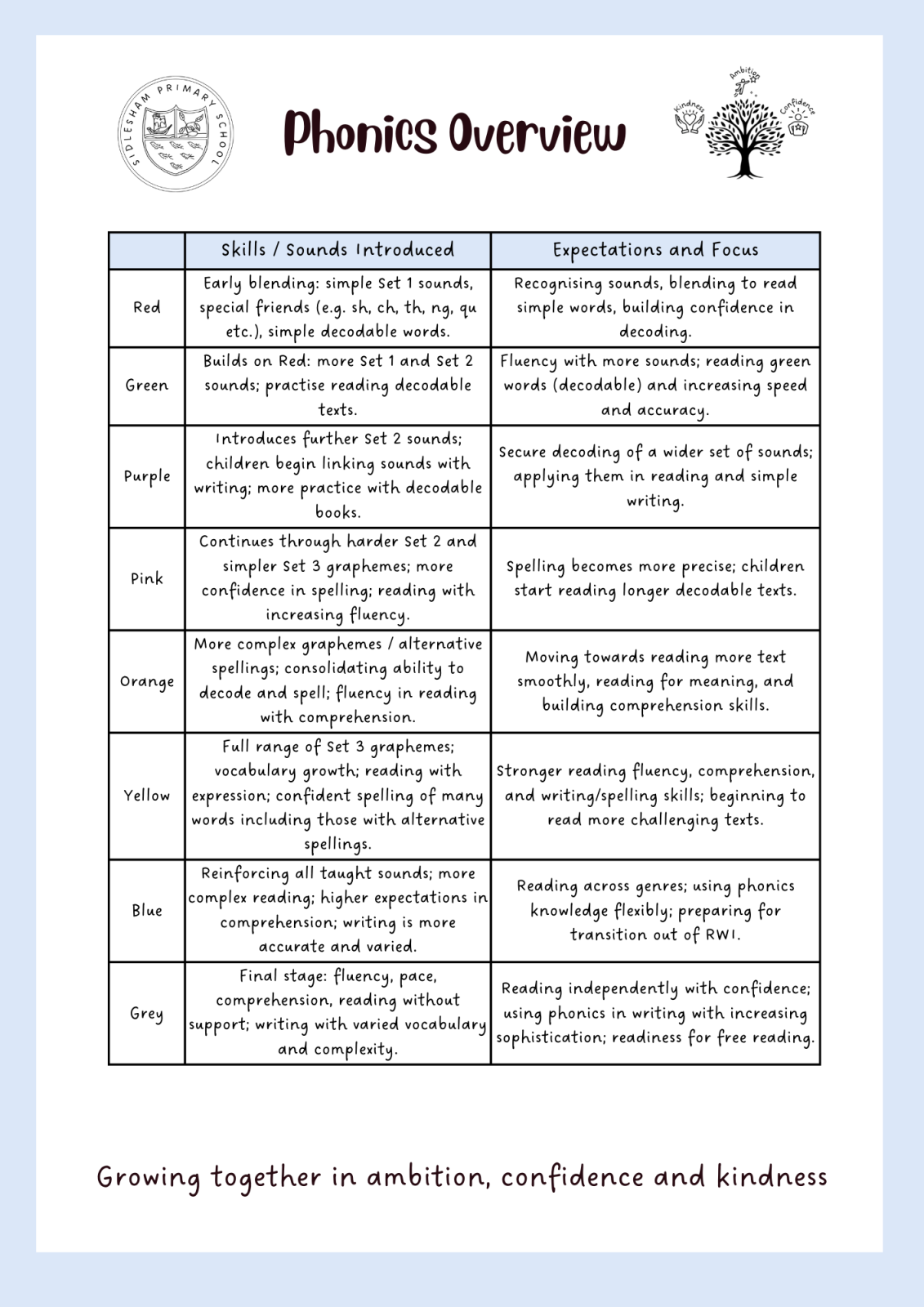Phonics
Subject Overview

Intent
At Sidlesham, we believe phonics is the gateway to confident, independent reading. We aim for every child to become a fluent, accurate reader by the end of Key Stage 1, able to tackle unfamiliar words with confidence. Phonics instruction also supports spelling and writing, helping children to encode words using the sounds they have learnt. Above all, we want children to see reading as more than a school task — to experience books as a source of pleasure, discovery and connection. That’s why we use the Read Write Inc (RWI) phonics programme: it offers a structured, evidence‑based way to build strong foundations in reading and writing, and supports pupils on their journey to becoming lifelong readers.
Implementation
Phonics is taught daily (five sessions per week) in Reception and Key Stage 1, and in targeted intervention across Key Stage 2 where needed. Using RWI, we follow a careful sequence: starting with the simplest sounds, then gradually introducing more complex combinations (graphemes) and spelling alternatives. In each 45‑minute session, children revise previous sounds, learn a new sound, practise reading and spelling, and apply it in simple texts. Pupils are grouped by ability, ensuring teaching is well matched to their progress.
In Reception, children learn individual sounds and “special friends” (e.g. ‘sh’, ‘oo’), and practise blending them to read words. In KS1, they build on this by mastering set 2 and 3 sounds, understanding alternative spellings (e.g. ai, ay, a‑e), and applying them in both reading and writing. Their phonics skills are reinforced across all subjects: classrooms display sound charts, and children are encouraged to use their phonics knowledge when writing in any lesson.
All pupils are assessed at the end of each half term using RWI assessments. This data allows us to reassign children into the right groups, monitor progress closely, and provide extra support where needed. The Year 1 Phonics Screening Check is a statutory milestone — those who don’t meet the standard are reassessed in Year 2. We also support parents through phonics workshops and by sending home decodable books that match each child’s phonics level.
Impact
By the end of Key Stage 1, most children will be fluent, confident readers who can decode unfamiliar words independently. As they move into Key Stage 2 and beyond, they will use their reading skills to explore a wide range of texts, deepen comprehension, and engage with learning across the curriculum. We track progress through national assessments (EYFS, KS1, KS2) and the Year 1 Phonics Screening Check. Internally, we monitor with RWI half‑termly tests, NFER reading assessments, “Comprehension Conversations,” and continuous class assessments. Through this systematic approach, we aim for every pupil to leave Sidlesham as a capable, enthusiastic reader ready for the next stage of their education.
RWInc QR Codes
read write inc qr codes set 1.pdf
read write inc qr codes set 1 special friends.pdf
read write inc qr codes fred games.pdf






